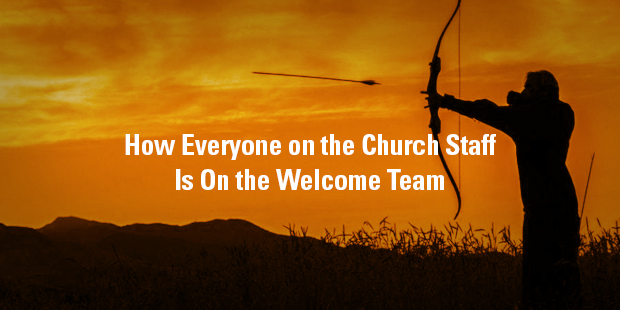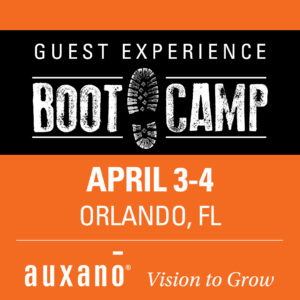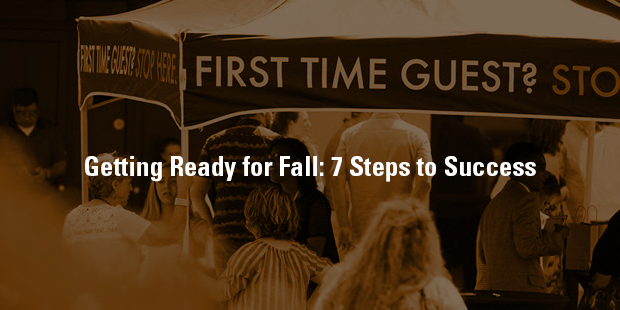It’s fairly easy for volunteers on your team to state what they do. It’s also pretty easy for most volunteers to talk about how they do what they do. However, few volunteers can actually articulate WHY they do what they do.
The reason? Stating WHY goes to values, and values are often talked about but more often misunderstood.
A church without values is like a river without banks – just a large puddle.
Values are the shared convictions that guide the actions and reveal the strength of the church. They are the values that represent the conscious and collective soul of your church because they express your most deeply held ideals. They define your ministry’s ethos.
Values are filters for decision-making and springboards for daily action. They are the constant reminder of what is most important to your church.
As with any organization, your church has a set of shared values underneath the surface of everyday activity. The problem is that they stay weak because they are unidentified and unharnessed in guiding the future.
The role of the leader is to identify the most important values and pull them above the waterline of people’s perception. Once they are in clear view, the leader can nurture their development, enabling the church to do more of what it does best.
What is true of your church as a whole is also true of individual ministries in your church.
THE QUICK SUMMARY – People Are The Mission by Danny Franks
Danny Franks, Guest Services Pastor at Summit Church, shows church leaders how to take a more balanced approach to the design and implementation of a guest services ministry. He introduces a new model for welcoming people to your church that is both guest-friendly and gospel-centric.
Your church’s preaching and worship styles may draw a crowd, but to keep a crowd, people must sense that you love them, that you expected them, and that you can’t wait for them to return. Finally, here is a book that tells you how to make that happen.
A SIMPLE SOLUTION
It’s easy to give a volunteer a job description and then point them in the right direction. Anyone can assign a task. And for the most part, just about anyone can execute most tasks.
However, a good leader does not just assign a task. A good leader starts with creating a compelling vision for the task. A great leader continually casts this compelling vision so there is no doubt why a ministry exists.
The main thing of the church – our why for existing – should be defined by God’s Word. And the primary message of Scripture is Jesus and that Jesus changes everything.
The good news that Jesus brought – real forgiveness of our sins and reconciliation with our Creator – does indeed change everything. It changes the way we live, work, and play. And it changes the way we structure our worship services and our annual budgets. When the gospel is the main thing, it will change everything. It will renovate our curriculum and reengineer our business meetings.
So rather than adapt to a formula, cut and paste a few principles, or tackle a list of action steps, take just one action step: imitate Jesus. Let’s remember that the one who sought us is still seeking others. Let’s keep in mind that the one who sought us is still seeking others. Let’s keep in mind that the Great Commission doesn’t just challenge us to make disciples at the ends of the earth but in our backyards. Let’s be salt and light, love people well, and set our weekend services up for great hospitality.
We need to keep reminding people that though we pour coffee, we are not there primarily to pour coffee. We direct traffic, but we are not traffic cops. We want a smooth, error-free service, but we don’t show up so that the weekend service will run more smoothly.
We do all that we do as a living, breathing, example of the grace of God, our small acts of service serving as a witness to God’s goodness in the life of an unbeliever.
Danny Franks, People Are The Mission
A NEXT STEP
People Are The Mission author Danny Franks writes, “We need to remind our teams that hospitality is a catalyst.” He continues, “That’s why it’s important to push the vision for serving guests at every opportunity.”
One of the best ways to communicate vision is through stories. As a leader, you should build up and maintain a “story repository” of at least ten great stories that relate volunteer heroics, ministry wins, and life change in action.
If you don’t currently do this, here’s a way to start. At your next team meeting, conduct this exercise:
You are in charge of a space expedition. Your purpose is to establish a colony on a distant planet. This colony must replicate the very best characteristics of your church’s hospitality ministry – but your spaceship only has ten seats. Uncover the heart of your hospitality ministry by selecting volunteers who will fill these seats.
Discuss among your team individuals to go on the journey. Who represents the “best of” your hospitality ministry? Use these questions to help you with your decision:
- What values do they live by, regardless of recognition?
- How do they demonstrate the values?
- Will their values be valid 100 years from now?
- What’s their “story” of serving on the hospitality ministry?
The resulting ten people and their “stories” should be the start of helping people connect the dots between the way the people served and how Jesus saved. They can demonstrate how the work they did helped pave the road toward a gospel awakening that a guest experienced.
Excerpt taken from SUMS Remix #99-1, released August 2018.
This is part of a weekly series posting excerpts from one of the most innovative content sources in the church world: SUMS Remix book excerpts for church leaders.
Each issue SUMS Remix takes a practical problem in the church and looks at it with three solutions; each solution is taken from a different book. Additionally, a practical action step is included with each solution.
As a church leader you get to scan relevant books based on practical tools and solutions to real ministry problems, not just by the cover of the book. Each post will have the edition number which shows the year and what number it is in the overall sequence. (SUMS Remix provides 26 issues per year, delivered every other week to your inbox).
> > Subscribe to SUMS Remix <<

Tags: Church Guest Experience, Danny Franks, Guest Experiences, People Are The Mission, SUMS Remix, Summit Church
|
What is MyVisionRoom? > | Back to Execution >

































